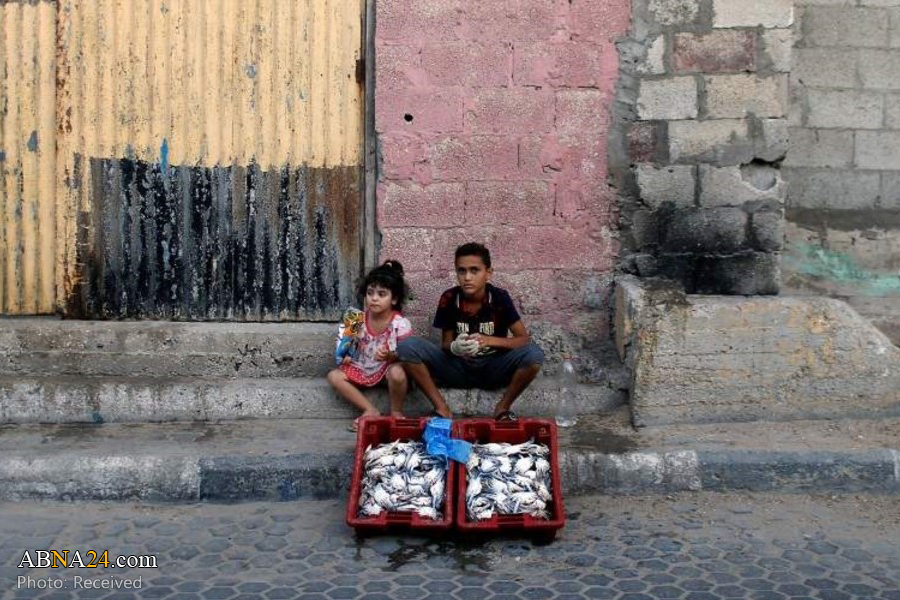AhlulBayt News Agency (ABNA): The United Nations (UN) says the Israeli blockade of the Gaza Strip has cost the densely-populated Palestinian enclave an estimated $16.7 billion in economic losses and sent poverty and unemployment skyrocketing.
The UN Conference on Trade and Development (UNCTAD) said in a report on Wednesday that Israel’s prolonged siege of Gaza and the regime’s military operations against the Palestinian territory had inflicted $16.7 billion in losses between 2007 and 2018.
It added that the blockade had driven the poverty rate in Gaza to increase almost fourfold compared with normal conditions. It also warned that the territory had one of the world’s highest unemployment rates, at around 52 percent.
The report, titled “Economic costs of the Israeli occupation for the Palestinian people: The Gaza Strip under closure and restrictions,” further said that the damage from Israel’s military operations against Gaza was equivalent to some six times Gaza’s GDP in 2018, or 107 percent of the total Palestinian GDP, including the occupied West Bank.
The result, the UN agency noted, was that “Gaza has witnessed one of the worst economic performances globally.”
The report, which was submitted to the UN General Assembly, also found that the economy of the impoverished sliver had grown by less than five percent between 2007 and 2018, its per capita GDP had shrunk by 27 percent, and unemployment risen by 49 percent.
Given the “near-collapse of Gaza’s regional economy and its isolation,” the UN agency stressed the “urgent need to end the closure of Gaza so that its people can freely trade with the rest of the occupied Palestinian territory and the world.”
The UNCTAD also called for the restoration of “free movement for businesses, medical care, education, recreation, and family unification.”
Separately, Richard Kozul-Wright, the director of UNCTAD’s globalization and development strategies, said that it was “extremely difficult to see anything but de-development being the fate of Gazan society.”
“That’s a real shocking conclusion in the 21st century: that two million people can be left in that kind of condition,” the UN official said at a press conference.
Over the weakened, public health experts also warned that a sharp rise in the number of the Palestinians infected with COVID-19 in the besieged Gaza Strip could overwhelm the impoverished enclave’s fragile health system.
Israel placed a land, air, and sea blockade against the Gaza Strip after the Hamas resistance movement won the elections and rose to power in the enclave in 2007.
Since then, Israel has also waged three wars against Gaza, killing and wounding thousands of Palestinians in each.
The crippling blockade has caused a sharp decline in the standards of living in the strip, which has logged 14,000 COVID-19 cases and 65 deaths, mostly since August.
..........................................
End/ 257
The UN Conference on Trade and Development (UNCTAD) said in a report on Wednesday that Israel’s prolonged siege of Gaza and the regime’s military operations against the Palestinian territory had inflicted $16.7 billion in losses between 2007 and 2018.
It added that the blockade had driven the poverty rate in Gaza to increase almost fourfold compared with normal conditions. It also warned that the territory had one of the world’s highest unemployment rates, at around 52 percent.
The report, titled “Economic costs of the Israeli occupation for the Palestinian people: The Gaza Strip under closure and restrictions,” further said that the damage from Israel’s military operations against Gaza was equivalent to some six times Gaza’s GDP in 2018, or 107 percent of the total Palestinian GDP, including the occupied West Bank.
The result, the UN agency noted, was that “Gaza has witnessed one of the worst economic performances globally.”
The report, which was submitted to the UN General Assembly, also found that the economy of the impoverished sliver had grown by less than five percent between 2007 and 2018, its per capita GDP had shrunk by 27 percent, and unemployment risen by 49 percent.
Given the “near-collapse of Gaza’s regional economy and its isolation,” the UN agency stressed the “urgent need to end the closure of Gaza so that its people can freely trade with the rest of the occupied Palestinian territory and the world.”
The UNCTAD also called for the restoration of “free movement for businesses, medical care, education, recreation, and family unification.”
Separately, Richard Kozul-Wright, the director of UNCTAD’s globalization and development strategies, said that it was “extremely difficult to see anything but de-development being the fate of Gazan society.”
“That’s a real shocking conclusion in the 21st century: that two million people can be left in that kind of condition,” the UN official said at a press conference.
Over the weakened, public health experts also warned that a sharp rise in the number of the Palestinians infected with COVID-19 in the besieged Gaza Strip could overwhelm the impoverished enclave’s fragile health system.
Israel placed a land, air, and sea blockade against the Gaza Strip after the Hamas resistance movement won the elections and rose to power in the enclave in 2007.
Since then, Israel has also waged three wars against Gaza, killing and wounding thousands of Palestinians in each.
The crippling blockade has caused a sharp decline in the standards of living in the strip, which has logged 14,000 COVID-19 cases and 65 deaths, mostly since August.
..........................................
End/ 257
source : PressTV
Thursday
26 November 2020
8:24:08 AM
1089621

The United Nations (UN) says the Israeli blockade of the Gaza Strip has cost the densely-populated Palestinian enclave an estimated $16.7 billion in economic losses and sent poverty and unemployment skyrocketing.
